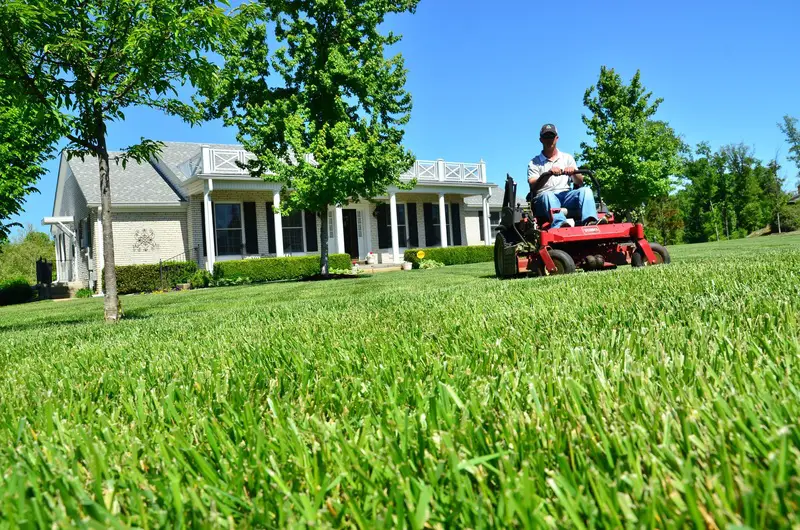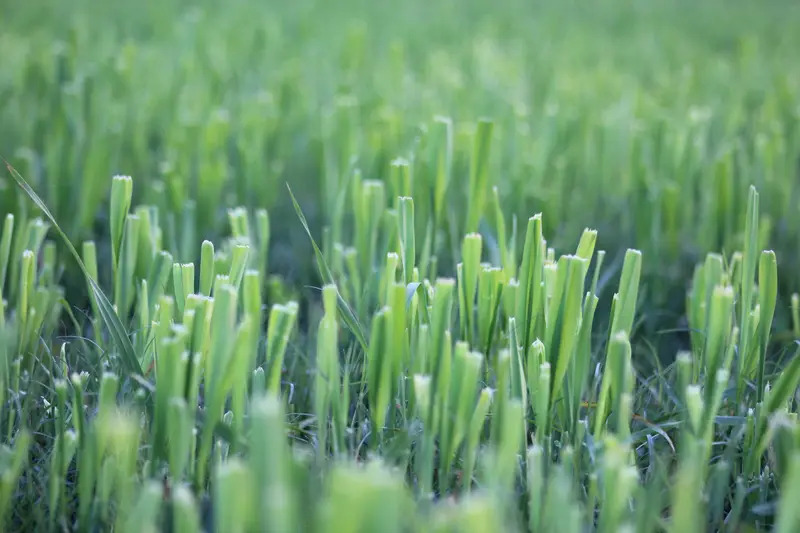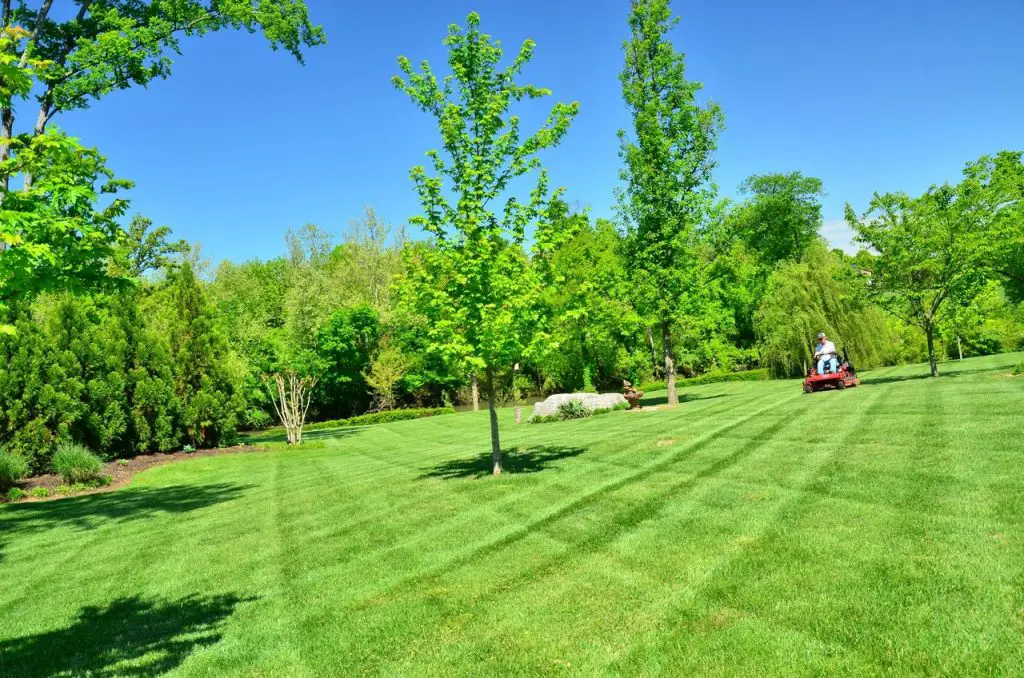What does Lawn Care Cost? Lawn Mowing and Maintenance Cost
What does Lawn Care Cost? Keeping your backyard in beautiful condition can be hard work. It is an investment of time, money and effort to keep it appealing. If you are nervous about the expense, take some comfort in understanding what to expect, and wait for a lush backyard once the work is done. On average, lawn care costs $96 to $213 USD with the average being $132 USD.
Lawn mowing can vary anywhere between $25 and $150 for the average weekly visit, with a national average of about $45 per week. The expense will fluctuate depending on how large the yard is, how often it is mowed, and what services are offered. However, some lawn care companies charge hourly instead of by budget or service, with incentives struggling to be provided for regular clients.
Main Things to Consider when Calculating Lawn Care Cost
It is challenging to estimate the cost of lawn care because there are multiple factors that can change price.
Importantly, there is a sliding scale of pricing between $48 and $211. The national average is $129 at minimum but the prices are different in urban cities and in rural areas. In rural towns it’s often cheaper, but may have travel fees for the distance. Furthermore, depending on geography, wet climates might require more frequent work on lawns as opposed to drier regions.
Services such as trimming, de-thatching, weed control, leaf removal, watering, and fertilizing will impact the total cost of lawn care. What many people may not realize is that frequency also has an effect on the cost. When the grass grows too long for too long before mowing you will have to pay more money. To get around that problem many companies offer discounts if the customer signs a long-term contract to reduce slightly the total cost.

Size of Lawn
Size can alter the price for lawn care in one of two different ways. If the gardener charges by the hour, a more advanced yard will take up more time and cost more. Hourly rates range from $25-$60 an hour. If the costs are by the square foot, which is not as common, but may be used for smaller yards- this same principle applies: larger yards cost more. Generally costs start at around a few cents per square foot.
The price for maintaining acres is usually calculated at a different rate than for average-sized yards. Larger properties often see smaller incremental increases because crews don’t have to perform extensive trimming and detailed work. On average, the acreage cost is $175 per acre, with prices ranging from $150 to $200 for a single.
The larger the lawn the more time required for a lawn or the more services required, the higher the final bill will be. Either the care company charges by hourly wages or by jobs they complete, the final cost is always more than what they quote to the customer.
Lawn Features
The presence of foliage, like trees and shrubs, delayed work that needs to be completed in fall and spring – causing it to take longer. This only compounds the costs.
Length and Type of Grass

The length and type of grass is also a consideration. Of course most types grass can be cut, but if it is usually difficult and might take more time costs increase. Different types of grass grow at different rates, with summer season’s type of grass growing at a higher rate. Weather such as temperature, and rain also affect the growth of grass. One helpful rule is not cutting more than one-third of the length of the grass from just one cutting.
Other Possible Costs and Considerations
There may be charges tacked on to services depending on the area, which can stem from traveling, owning certain equipment or following a set of other conditions. The more difficult the property, like high hills and rocky terrain, the higher the lawn care cost will be. Lastly, if there are additional tasks or labor-intensive areas on a property, you can be charged more for them.
Travel Expenses
Generally, travel costs are included in hourly rates, but if the lawn professional isn’t near your residence, there could be a travel surcharge. Some companies levy a flat rate travel fee; others charge per mile beyond their service radius. Previously, with fuel shortages, some companies have increased travel expenses with a fuel surtax to cover fuel cost. To keep costs down, search for “lawn service near me” when browsing the internet to ensure you’re in the service radius of the company that you select.
Upkeep of Equipment
The cost of a lawn service and tools can vary based on the company’s upkeep. However, it’s likely that independent lawn care professionals don’t have as much overhead as a company, such as new equipment, employee uniforms, and liability insurance.
Lawn Care Contracts and Service Packages
When customers repeatedly use a companies services some companies offer discounts to encourage adherence to the loyalty plan. Such companies often offer the discounted packages in areas where they have the most time and money invested such as lawn care, giving them an advantage over competitors that do not currently offer such packages.
Lawn Care Cost: Various Types of Lawn Care and Lawn Maintenance
When accounting for lawn care costs. If your lawn is relatively small, it will cost less to mow than an acreage. Flags, playground equipment, and lawn furniture can create challenges for lawn care experts to tackle. These challenges will be shown in your bill.
If your garden is on a watering schedule or needs fertilization, expect to pay for these services on top of the normal fees for mowing. Also, you may need more weed control or pest control. Add extras like mulching, trimming, annual leaf cleanup, and additional organic treatments if you’re trying to avoid spraying your lawn with “chemicals.”
If you think about mowing as your primary lawn care function then consider annual or semi-annual tasks like leaf removal, aeration, tree trimming, and winterizing go beyond the basics. Some homeowners want to take it one step further to the curb appeal by enhancing their landscaping.
Lawn Mowing
The price of lawn mowing is on average around $129 mark. On the low end, you would save as much as $30 and on the high end $515. Factors that contribute to the cost of lawn mowing is the type of grass, terrain, frequency of mowing, and any obstacles (including trees and other plantings) that the crew has to navigate around.
Watering the Lawn
Maybe you’ve planted new seeds to grow your decision, but there is a lack of rain that is preventing the grass from growing well. Or maybe a large yard is also dry and thirsty because of how much was decided and if so then paying a lawn care service will cost about $50 to $400.
Lawn Edging
There are various ways to create a tidy contrast between beds and lawn, often called “landscaping curbing.” This can be done through brick, concrete blocks, natural stone, or even by using PVC plastic. The quantity of linear feet that need to be edged will determine the costs. If you want to mulch your planting beds once this has already been done, it will cost an additional cost.
Fertilizing
Regular fertilization helps to make your lawn full, thick, and green. There are a lot of possibilities: granules or liquid, slow- or quick-release, artificial or even organic. All—plus the size from the yard are going to affect the cost but routine fertilization averages between $80 and $380.
Lawn Aeration
Aerating allows the soil to absorb water and nutrients effectively in addition to being healthier looking. Generally done in the Spring, aeration any time is more expensive than other times of the year. When expected costs are taken into account, the average cost of aeration is between $70 and $190.
Tree Trimming
To trim your trees so they don’t become intrusive, you will now and then need to trim them. The cost is impacted by several factors, including health, location, proximity, accessibility, size and more. as a rule, the cost is around 500 dollars but getting taller trees can easily end up costing upwards of 1000 dollars or more, because being trendy doesn’t come cheap. More importantly for new tree owners is constantly measuring the height of their trees on a yearly basis. Of course grinding the stump also costs extra.
Weed Control
Weed control prices vary depending on the size of your yard, how many weeds are there, and how often it needs an additional treatment. Some weeds such as Canada thistle are harmful, but other ones such as dandelions and crabgrass are not. It is difficult to have control over herbicide application costs as they can vary anywhere from $35 to $120.
Lawn Pest Control Costs
If your lawn is turning brown or dying, take control of the situation. White grubs are arguably the most destructive, but chinch bugs, cutworms, sod webworms, and armyworms can also wreak havoc on your lawn. You don’t have to deal with pests alone. It’s common to visit a pest control company if your lawn is at risk for a problem. For $200 to $300, they’ll provide the materials to fix the problem and get your lawn healthy again in no time.
Seeding or Reseeding
If you need to seed or reseed lawn preparation often costs between $90 and $180 per square feet. Planting a new lawn does less work than repairing a damaged one because the latter involves removing existing grass, tilling the soil, and amending it before planting. Renovating is less costly in terms of lawn care because it deals with less intensive repairs involving areas which are much smaller, where the grass is thinner, has been damaged, or is non-existent.
Leaf Removal
While chopping up leaves and adding them to the top of a lawn is an excellent idea, it can create different bad areas that can be very noticeable. This is also an issue with piles of leaves left over from winter. They are likely to be very moldy or develop dying patches.
Leaf removal may set you back $190 up to $540, depending on the size of the yard and the amount of trees around it dropping leaves.
Landscaping
It is sometimes useful to cut back on the area of lawn. For example might want to choose a smaller area to mow around their lawn or patio, and there are liners that can block off anything above ground. These choices will both create more significant yards or pools, and increased home values. Landscaping is also beneficial by adding simple mulched flower beds or native trees to an existing or new walkway.You can save money and energy with some ideas like a rain barrel.
Most landscapers charge anywhere from $50 to $100 per hour, and the typical landscaping project will fall somewhere between $1,400 – $5,400.
Seasonal Costs for Lawn Maintenance
Of course changing seasons can bring different requirements for your lawn care regime ans thus impact on lawn are coat.
Cleanups
Clean ups in spring and fall yard tend to follow the same procedure. Both of these services snip off and haul away dead and dying branches with fallen leaves. They should trim back dead flowers and shrubs and bald spots in the lawns to make them healthy again. In terms of adding to your lawn care cost they usually run $100 to $250, but they are worth it because professionals can tell that different plants require different care during different times of the year.
Winterizing
In the winter, a lawn is just like a child who needs to take a long deep sleep. While plants that are just flowers in the summer go asleep in winter, plants that are cool in the summer need some nutrition from fall to get better. They will require a different type of fertiliser- one with higher percentage of phosphorus and potassium than can increase their hardiness in the cold weather. It is vital that you remove any debris like fallen branches, together with anything that would kill grass. In terms of lawn care cost for winterizing your lawn it can be in the range of between $80 and $380, depending on the certain conditions you require. If you require winterizing for your sprinkler system, you are more than likely to need an extra $50 to $110.
Lawn Care Cost: Do I Need Lawn Care?

The benefits of hiring lawn care experts come from reducing the homeowner’s work and worries. Working hours can prevent on-time maintenance of a yard, and using a lawn care service means that homeowners don’t have to spend time researching fertilization, which can be difficult. For instance, the customer doesn’t need to worry about when to buy supplies or what equipment needs sharpening.
It is a time-saving benefit to hire a lawn care company cause they will take care of equipment maintenance on your property including any lawn mowers, weed eaters, or landscaping equipment. This will save you the trouble of storing and maintaining your own equipment as well as purchasing those items.
There are seemingly infinite reasons to hire someone. Homes may need a little environmental enhancement due to wear and tear. The owner could have limitations that prevent physical labor or lack the knowledge to complete some tasks.
By enlisting help, you won’t have to remember when you last fertilized or figure out the type of mulch that is best for flower beds. The professionals will leave you to tend to your garden without having to worry yourself with things like mowing, trimming, and fertilizing.
You might find it strange, but professional gardeners can offer solutions to your problems that you otherwise wouldn’t be able to afford. The use professional-grade equipment you need not worry about buying, and they buy substances like plants and worms in bulk which saves you money.
If you don’t take care of your lawn properly and cause mistakes, the cost for repairs will cost more, so it’s recommended to let professional help you with your lawn.
Saving Time
According to compiled data from the Bureau of Labor Statistics, which is known for gathering statistics, Americans put in an average of 59 hours of work in a day to do yard work. Sometimes people don’t have the green thumb required to keep grass healthy and pretty. While people want to spend time doing other things, they don’t want to sacrifice a handsome yard. bringing in a lawn care company lets them spend time on other things without sacrificing their beautifully groomed lawn.
Saving Money
Professional lawn maintenance is actually more affordable than it seems and is often completed more efficiently. You may be able to negotiate a lower, or no, price depending on the lawn care company’s contract pricing system. Many companies offer discounts if you decide to make a long-term (year or seasonal based) pre-paid purchase on their services.
Expert Care
There are more than 25 million Americans who choose to work with lawn care service providers. They have the knowledge and hands-on experience to make your lawn, their workshop, into one beautiful masterpiece. Armed with proficiency and the knowledge of the right tools, they can save you money from wasting countless hours attempting to do the work yourself. They know where certain plants thrive best in what zones and they are aware of native plant varieties. Their background guarantees their ability to recognize certain issues and resolve them accordingly.
Good Lawn Care Helps Make Your Property Look Good
Good lawn care can help show your property in its best light. If you’re looking to sell ans are in a hurry to get your house sold good first impressions are essential. That’s why curbing appeal is so important: Curb appeal can increase the speed of sale and the cost of your property. An attractive landscape will attract people and make them want to come inside. With a perfect lawn, some trees and bushes, bits of flowers, decent lighting, and appropriate decor that matches the home’s personality, your property will definitely stand out.
Lawn Care Cost: Hiring a Professional vs DIY
Lawn care can seem easy at first, so many people take the DIY approach. They save a decent amount of money and get a little exercise due to the tasks. People with a green thumb typically enjoy landscaping, gardening, and lawn care as hobbies because they have complete control over what is happening and they are able to use their own preference.
However, intervention in pest control can have hidden costs, and if the homeowner is inexperienced in resolving issues or eliminating pests, bigger problems (an emergency phone call to the professionals) can rise up.
Some property owners may not be knowledgeable about lawn care so they would feel confused, overwhelmed, or frustrated. Hiring a specialist for lawn care provides peace of mind. Particular to these cases where the lawn has issues that require diagnosis, they often provide better results hiring these individuals.
By hiring a professional lawn care company, an individual is able to reap numerous benefits. A company provides them with convenience and assurance that their lawn will be properly maintained, even if their schedule is extremely hectic.
Lawn care professionals possess professional-grade equipment; they upkeep its usage and manage its danger of breaking down. It also lessens any expense the homeowner may have incurred by buying their own tools and equipment, or any maintenance once it has been purchased. One doesn’t need to store any excess tools and machinery, constantly recharge the tools, or refill fuel cans.
If your lawn needs some care such as fertilizing, weed control, or any other service—or you need extracurricular landscaping services, such as in-demand tree professional, mulching, edging, or some other measure, your lawn care company may be the provider. In order to keep running into unnecessary treatments, be careful to watch for automatic treatments that can tack on more to the bill but may not be always necessarily.
When people do it themselves, many were more interested with their personal goals, be they enjoyment, exercise etc., than the actual lawn care itself. Those people would be better off leaving it to the professionals.
Best Ways to Save Money on Lawn Care Cost
Gardening is a hobby that people find costly: Lawn care cost can bewilder the most passionate gardener or citizen. There are methods to reduce the cost without lowering the outcome.
- Negotiate a price with your provider. Inquire about prepayment plans or seasonal contracts to save money.
- It is important to know how to reduce the need to water or irrigate lawns. Homeowners can achieve these goals by using xeriscaping (choosing native plants and drought-tolerant plants).
- Reduce the size of your lawn by adding permanent decks or tiling, and replacing the lawn with creeping natives that require no care.
- The plant sales in the fall will provide discounts that save up to 50%
Questions that You Should Ask of a Lawn Care Professional
If you’ve never hired a lawn care service before, you may not know what to ask them before deciding if they’re the right company for you. For the most satisfying results, it’s essential to do a little research on each potential company.
- Do they have credentials for doing the services you need?
- Are they insured?
- Do they have experience in doing the services you need?
- Can they provide references? (personal or professional)
- Are they going to be able to come up with a plan of action to get you the results you want?
- How much are they charging you and what do they consider the minimum cost to complete the job?
- Do they provide any guarantees for their work?
- Do they have any discounts at any times
FAQs about Lawn Care and Lawn Care Costs
Q. How often should I mow the lawn?
A. It should be mowed regularly in order to keep it looking good. For the best results, mow the lawn when the grass is dry so the clippings are easy to remove.
Q What is the best time of day to mow the lawn?
A. It is best to mow in the early morning when the humidity level is low and the grass is still damp from the cool night air. Longer grass is easier to cut, which means you will have to mow less often.
Q. Does frequent mowing thicken grass?
A. Yes. The point of mowing is to remove the clipping, not to leave it on the lawn to decompose and make the lawn thick.
Q. When is the best time to fertilize?
A. Just as the grass is beginning to turn from spring green to summer green in the spring, or in the fall when the grass starts to turn yellow. (See answer below in the section on fertilizers.)
Q. Are there different kinds of lawn grass?
A. Yes. There are cool-season grasses and warm-season grasses. Cool-season grasses, such as fescue, require a cold season to grow and develop. They grow better in the spring and fall. Warm-season grasses, such as Bermuda, grow well in the summer.
Q. What kind of grass should I have in my lawn?
A. It depends on your region. The best grass for you depends on your location and the time of year. (See the section on grass types.)
Q. Will weeds come up in my new lawn?
A. Not if you have the right kind of grass. Weed seeds are usually dormant in the soil until the weather is right for their growth. Different grasses, however, tolerate various types of weeds. Some grasses, such as St. Augustine, do best with no weeds present, as they will shade them out.
Q. Does watering help grass?
A. Yes. Watering your lawn a few times a week will help it grow. Watering will help the grass grow stronger roots and help keep it healthy. It will also help the grass to grow faster. (See the section on watering.)
Q. How often should I water my lawn?
A. It depends on the type of grass you have and the amount of rainfall received. Different grasses require different amounts of water. (See the section on watering.)
Q. Will watering my lawn in the evening help it?
A. No. Watering in the evening is not recommended because it encourages disease, such as fungus and mold.
Q. When is the best time to fertilize my lawn?
A. Fertilizing your lawn in the spring or fall is best. The best time to fertilize is just as the grass is beginning to turn from spring green to summer green in the spring, or in the fall when the grass starts to turn yellow. (See the section on fertilizers.)
Q. What kind of fertilizer should I use?
A. Use a blend of natural or organic fertilizers that include nitrogen, phosphorus, and potassium (NPK) — preferably a 5-10-5 or a 10-10-10. This will provide the best results for your lawn. (See the section on fertilizers.)
